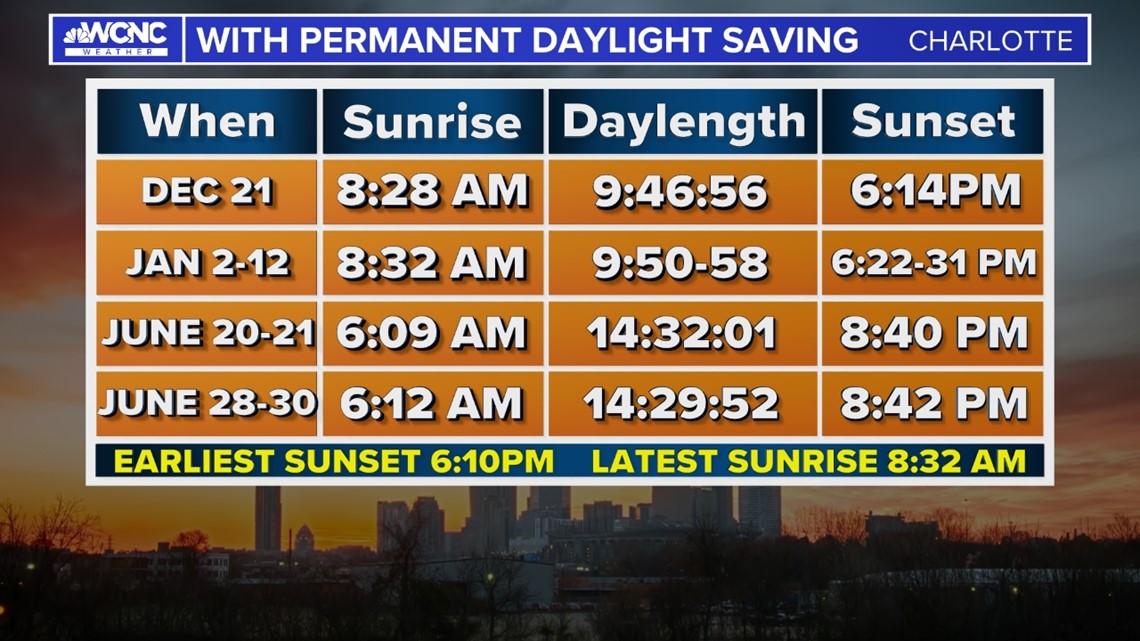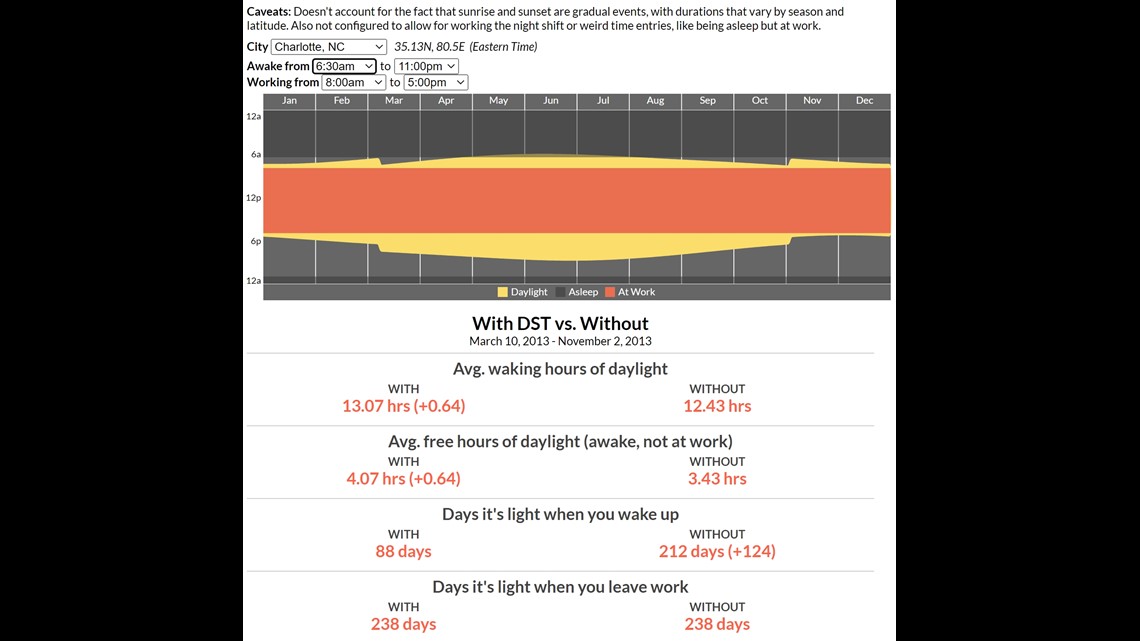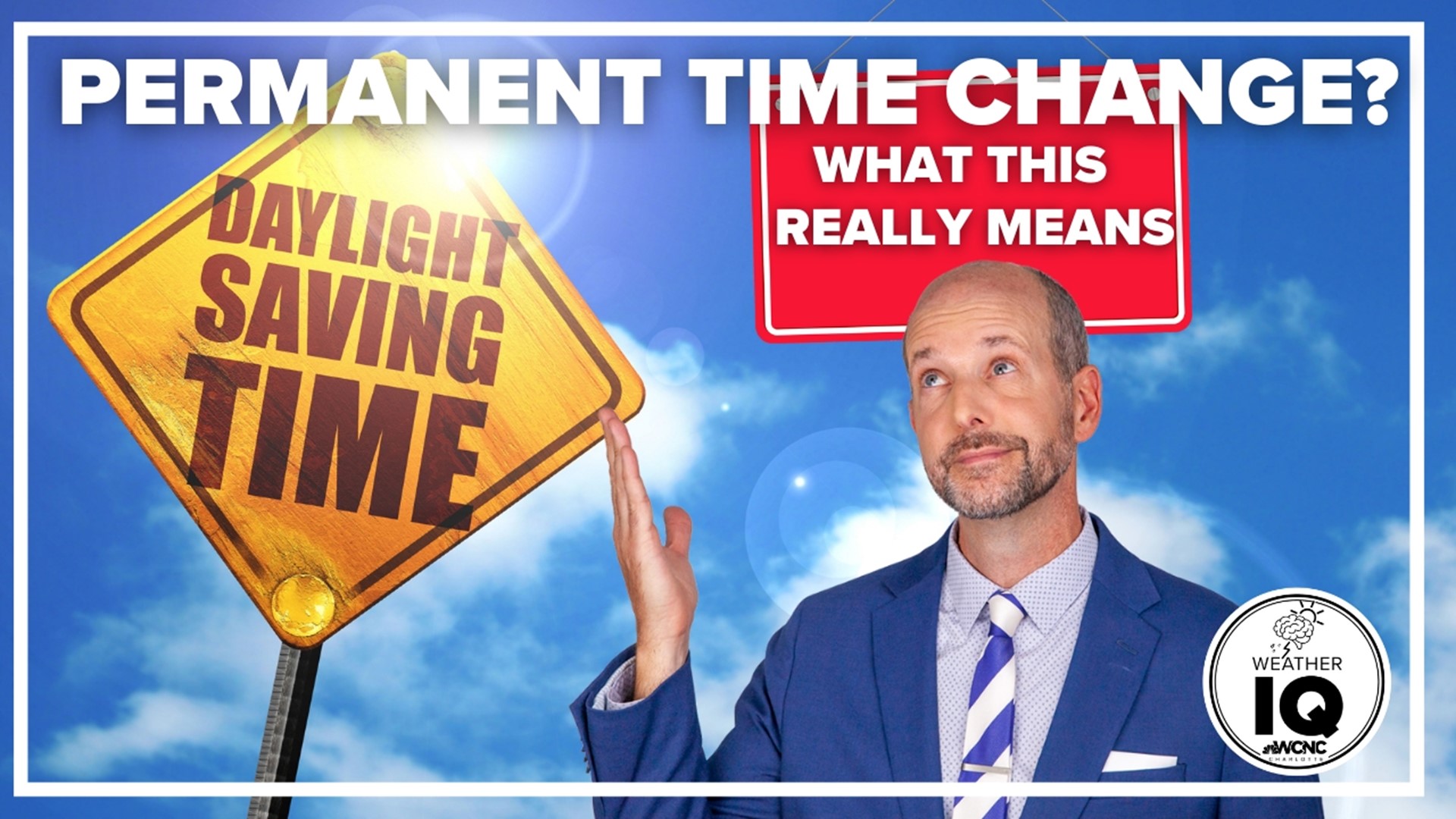CHARLOTTE, N.C. — The U.S. Senate unanimously passed a bill Tuesday that would make daylight saving time permanent, moving the country closer to ending biannual clock changes.
The Sunshine Protection Act was passed by unanimous consent Tuesday after being introduced by Sens. Marco Rubio (R-FL) and Ed Markey (D-MA). The bill had 16 other co-sponsors. It now goes to the House for passage, and if it's approved, it would go before president Joe Biden for his signature. This would make daylight saving time permanent beginning in November of 2023.
While it had unanimous support in one house of Congress, public opinion on social media was all over the place. Most said they liked it, while some hate the idea. Let's take a look at the facts of how this would look in the Charlotte, North Carolina, area.
Length of daylight
This might seem obvious, but no matter what we do with the clocks, the length of daylight won't change from its natural progression throughout the year. This is all governed by the orbit around the sun and the tilt of the Earth on its axis. No acts of Congress will change that.
Below is the sun graph for Charlotte, and you'll see how shifting the time doesn't affect the length of daylight. No matter what we do, we are still are going to only have 9 hours and 45 minutes to 10 hours of sunlight in late December and January. If you work eight hours of the day or at school for eight hours, you are going to have some darkness either in the morning or in the evening.
We already have DST for 65% of the year
Even if there are no changes, we already spend 238 days of the year, or 65%, on daylight saving time. We only spend 127 days on standard time now, so going to permanent daylight saving would be far less of a change than keeping year-round standard time.
How the latest sunrise and earliest sunset are affected
The biggest impacts of a permanent daylight saving time will be in December and January. We will have some very late sunrises. For about 12 days in January, we would not see sunrise until 8:32 a.m., granted twilight would start at 8 a.m.
The flip side of this is that instead of our early sunset around 5:10 p.m. in late December and early January, we would see our earliest sunset shift to 6:10 p.m. Whether we stay on standard time or go to year-round daylight saving time, if you leave the house before 7:30 a.m. in the winter, it's going to be dark. What changes is how long it stays dark after you leave.


So what does this all mean?
I stumbled across this great tool from Noah Veltman to see how daylight saving time affects the number of hours you have free in daylight on average. For Charlotte, I used working hours from 8 a.m. until 5 p.m. to see how with or without daylight saving time would affect your free time with daylight. The results are below, but if you want to try your won number use this link.


Conclusion
There have been numerous studies showing the effects of daylight saving time. Some showed just minor energy savings of 1-3%, less crime, and safer roads in the evenings. Golf courses and recreation areas and sports leagues without lighted fields all love daylight saving time. So do most outdoor tourism states. Let's face it, people spend more time outside when there's more daylight in the evenings.
Others point to dark roads in the mornings and kids going to school in the dark. The benefits, or lack thereof, are hard to measure. It seems to come down to personal preference and where you live. Some higher latitudes and those on the western part of time zones would have some very late sunrises, but they already do anyway. In the end, it's just one hour for 35% of the year we are talking about changing. I think if we were changing 65% of the year, the impact might be larger. No matter what happens, it really comes down to your personal schedule and preferences over wethers once is way is clearly better than the other. The one thing I know is people have strong opinions either way.

